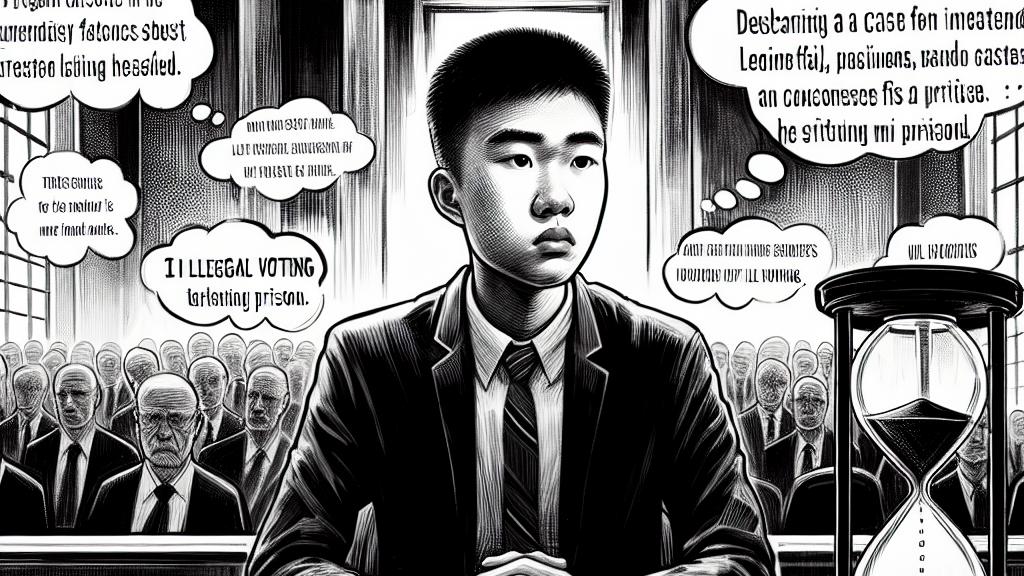Chinese Student Charged with Illegal Voting in the US
Overview
- Gao Haoxiang, a 19-year-old student from China, faces serious charges for allegedly voting illegally in Michigan's 2024 presidential election.
- This incident raises critical questions about election integrity and the complexities surrounding voter registration for noncitizens in America.
- The consequences of illegal voting, such as severe prison sentences, can have lasting impacts on individuals and the electoral process.

Background of the Case
In a striking case shaking up Ann Arbor, Michigan, Gao Haoxiang, just 19 years old and a promising Chinese student at the University of Michigan, finds himself embroiled in a legal scandal. He was charged with voting illegally in the presidential election, a situation that emerged just days ahead of the voting day. This shocking revelation has not only drawn media attention but also highlighted the precarious nature of voter eligibility regulations. Remarkably silent during his court arraignment, Gao's future hangs in the balance, with a potential prison sentence of up to 15 years looming over him. This alarming scenario underscores the need for vigilance and understanding of election laws among all voters.
Implications of Illegal Voting
The implications of Gao's situation reverberate throughout the halls of political discussion, eliciting widespread reactions regarding the integrity of the electoral process. Officials in Michigan have admitted that, once a ballot is cast, reversing the decision poses significant challenges. Gao's case comes at a time when the conversation surrounding voter fraud—often cited yet frequently discredited—continues to loom large in public discourse. His actions could further complicate relations between legal authorities and the noncitizen population, stirring up fears and mistrust. Importantly, this incident serves as a crucial reminder of the balance necessary between safeguarding the electoral system and understanding its complexities, sending a message that vigilance is paramount.
Broader Context of Voter Registration Issues
Gao's predicament shines a light on a pervasive issue affecting voter registration across the United States. Numerous noncitizens inadvertently find themselves registered to vote, often due to intricate and confusing bureaucratic processes. Consider the experiences of many immigrants who, while applying for driver’s licenses, unexpectedly receive voter registration cards without knowing their ineligibility. For example, in Pennsylvania, reports detail how numerous individuals were alarmed to discover they were registered to vote simply from visiting the DMV. Such stories highlight the necessity for systemic reforms to address these lapses. As states move to enhance communication regarding registration, Gao's case stands as a pivotal moment, urging everyone—from individuals to governing bodies—to foster a greater awareness and understanding of the legal landscape surrounding voting.

Loading...